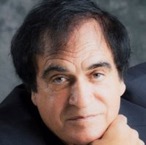
Q&A with Dr. David Raphael Elmaleh
Founder of AZTherapies
Principal Series:
Family Office Insights sits down with Dr. David Raphael Elmaleh of AZTherapies to discuss his company and the innovations he and his team are making in treating Alzheimer’s disease.

Family Office Insights is a voluntary, “opt-in” collaborative peer-to-peer community of single family offices, qualified investors and institutional investors. Join the community here www.familyofficeinsights.com
Tell us what AZTherapies is all about?
AZTherapies is a clinical stage pharmaceutical company developing breakthrough treatments for neurodegeneration and neuroinflammation. We have a true platform of technologies that we believe will change the way neuroinflammation is treated across many different central nervous system diseases.
AZTherapies is privately held and headquartered in Boston, Massachusetts. Built around patented technology exclusively licensed from Harvard/Massachusetts General Hospital, our initial product candidates look to impact some of the world’s most devastating unmet medical needs. We are currently enrolling a Phase III clinical study to slow down or halt the onset of Alzheimer’s disease.
Our treatment is dual action. It(1) inhibits amyloid-beta protein aggregates that intoxicate neurons and block their signaling, and (2) treats inflammation in the brain that triggers nerve death and progressive brain damage.
We are also preparing to launch a Phase II trial for our adjuvant treatment for post ischemic stroke cognitive impairment. Our preclinical studies lead us to believe our treatment is very safe, and can be added to the current standard of care for the patient. It helps to control regulatory proteins, like cytokines and other toxins that exacerbate the inflammatory response in stroke victims, which we believe will allow for much faster recovery.
As we prove the power of our platform, we believe that these two products are just the beginning. We have partnered with another group to run animal studies focused on ALS, and we are working with Harvard/MGH to identify new applications.
Why has there been so much failure in the Alzheimer’s treatment industry?
My first publication on Alzheimer’s was in the late 1980s. Since then, I have watched as promising approaches have come up short. From my perspective, there are three main reasons for the clinical failure in Alzheimer’s disease.
First, the industry didn’t appreciate the importance of treating the disease early. Many clinical studies target Alzheimer’s patients with moderate to severe disease. At that point, the brain damage is significant, with massive neuron death. At that stage, neural and network treatment is too late to correct. That is why AZTherapies is focused on diagnosing and treating patients early.
Second, the brain is such a complex network, I believe an effective treatment will need to deal with more than one trigger of the disease. Most studies target a single mechanism of action.
Third, the industry lost sight of the importance of having a treatment that could be safe over long periods of time. Unlike cancer, where patients are dosed over short periods of time (months), AD patients are dosed over years. Other treatment approaches, including enzyme inhibitors, biologics and other drugs or supplements may show initial efficacy, but in most cases, do not achieve their endpoint due to their long term side effects and toxicity associated with chronic drug administration. Chronic administration and drug dosing overwhelm the patient, and do not allow for efficacy. I am extremely proud of the safety of our drugs, and the innovations we have used in dosing. Our Phase I data, and experience in our current Phase III study is really terrific in this area.
With decades of learning, my approach to this disease is truly differentiated. We have focused on the best diagnostic approaches to recruit patients early in the disease progression, we have a combination therapy, tackling two of the pillars of the disease cascade, and we are using small molecules with a proven safety profile and we apply innovations in dosing to allow for chronic treatment without systemic toxicity.
How are you changing the landscape when it comes to Alzheimer’s?
As an initial matter, our approach is to change the trajectory of the disease, not just treat symptoms. We want patients to have more healthy years. Imagine the impact on patients, caregivers and family if we can successfully fend off this terrible disease for a year, two years or more.
Our approach to treatment targets patients early in their disease state, before the brain is significantly damaged by massive neuron death, where amyloid-beta oligomers, and plaque and tau tangles interfere in synaptic transmission and network communication.
We have led the industry in promoting a multi-target, or combination approach. With something as complex as the brain, we believe this will be necessary to make an impact. Our approach both prevents the formation of oligomer and polymers and treats the invisible neuro-inflammation that propagates as a response to the brain network interference.
Finally, we have prioritized safety. This is very important to me.
Why are you unique?
We have the only molecules that I know of that can trigger the activation of specific healing cells in the brain. Our drug platform enables a healing mechanism that will change the treatment of neuro-inflammation and neurodegeneration for millions of patients, and we believe will be a major breakthrough for the world’s most elusive unmet medical needs, like Alzheimer’s, stroke, ALS and Parkinson’s.
What types of investors are you looking for?
Our company is uniquely situated for a short term return on investment stemming from the imminent readout of our late stage clinical programs, and is seeking sophisticated individual investors, family offices and investment funds that have an appetite for novel CNS drugs that change the pathway of neuro-inflammation and neurodegeneration.
How much capital are you looking to raise?
The company is seeking to close on a $20-50MM round of capital to complete its Alzheimer’s trial, its ischemic stroke trial and advance it neuro-inflammation treatment platform to the clinic with other products.
What’s next for you and AZTherapies?
In addition to its Alzheimer’s and ischemic stroke studies, AZTherapies is in advanced stages of initiating trials in ALS and other neurodegenerative orphan diseases, and we are collecting data on our next generation Alzheimer’s treatments.

Dr. David Raphael Elmaleh
Dr. Elmaleh is an Associate Professor at Harvard Medical School and the Director of Contrast Media Chemistry at the Massachusetts General Hospital. He is a renowned molecular imaging expert and inventor of numerous molecular imaging agents including three drugs that are in use in man or in late stage clinical trials, including the radiopharmaceutical preparation of (2FDG) which has been used in millions of PET imaging procedures. Dr. Elmaleh also recently received patent protection for the use of 18F-FDG PET for imaging atherosclerosis, for tracking inflammation within plaques, and for monitoring the response to drug therapy; a promising use that should be part of the future diagnostic armament. Dr. Elmaleh’s extensive research of the metabolic trapping of fatty acids and other imaging-designed drugs was a pivotal turning point in the development of molecular imaging. Influenced by the ingenious mathematical model developed by Dr. Louis Sokol off for measuring brain glucose, Dr. Elmaleh, developed a parallel path for trapping fatty acid degradation via the beta-oxidation process, for which Professor Feodor Lynen received a Nobel Prize in 1964. Beta-methyl modified fatty acid, (BMIPP) is a commercially successful cardiac SPECT agent in Japan and Europe. He has also played a role in the development of Altropane, a Parkinson’s disease diagnostic agent (nominated as one of the 25 most valuable inventions of the brain decade by associated universities) that has completed Phase III clinical trials, several novel agents for early detection of dopamine and serotonin targeting drugs, and reversible acetyl choline esterase inhibitors. He also developed a new approach for molecular imaging with oligonucleotides and siRNA by facilitating the delivery to transformed cells using small molecular structures.
Dr. Elmaleh is a founder of several biotech companies including Molecular Insight (formerly Biostream) and Mersana (formerly NanoPharma) that recently closed a drug deals for over $700 million with big pharma. He also co-founded Puretech health that recently went public on The London Stock Exchange, at a valuation over $500 million.
For more information, please visit http://aztherapies.com/ or email Dr. Elmaleh at delmaleh@aztherapies.com.
